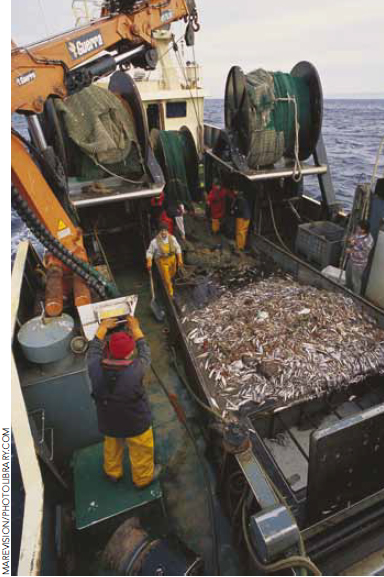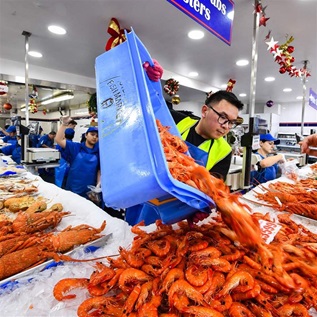Port State Performance
Putting illegal, unreported and unregulated fishing on the radar

Illegal, unreported and unregulated (IUU) fishing is notorious for undermining efforts to manage fisheries sustainably and has detrimental environmental, social and economic consequences. Pew's Port State Performance research focuses on the role that port States play in abating IUU fishing by assessing how effectively they are implementing port State measures. As the situation stands, the system of port State measures lacks transparency, accountability and global reach, and is thus failing to close loopholes exploited by IUU operators and to keep IUU fish out of ports (flothmann et al. 2010).
Without effective management of fish stocks, the outlook for global fisheries is bleak. Unscrupulous owners and operators of fishing vessels around the world continue to undermine fisheries management by disregarding regulations designed to conserve the marine environment. Just the unlawful aspects, namely illegal and unreported fishing, account for catches equivalent to approximately one-fifth of the global reported fish catch. In response to the consistent failure of many flag States to control IUU vessels on the high seas, the international community initiated an additional approach to tackling IUU fishing: port State measures. By adopting restrictive measures in ports where IUU catch is landed, port States can prevent IUU fish from entering international trade and finding their way into key markets. accordingly, national, regional and global initiatives have been focusing over the past decade on the adoption and implementation of increasingly stringent port State measures to combat IUU fishing. this has culminated in the negotiation of the agreement on Port State measures to Prevent, Deter and eliminate Illegal, Unreported and Unregulated fishing (PSMA), which was approved by the United nations food and agriculture organization (FAO) in November 2009. Once the PSMA enters into force, it will be the first legally binding international treaty designed solely to combat IUU fishing.
The Pew Environment Group has undertaken the first comprehensive evaluation of the effectiveness of current port State measures and the implementation challenges that port States face. The study also assesses the central role that regional fisheries management organisations (RFMOs) play in the process. The research focuses on port State measures directed specifically at vessels on the IUU vessel lists adopted by RFMOs – vessels that have been found to engage in or support IUU fishing. Imposing sanctions on these vessels at port aims at rendering their operations less profitable and lucrative.
This study reviews the IUU vessel lists of the following eight RFMO: (1) Commission for the Conservation of Antarctic Marine Living Resources (CCAMLR), (2) Inter-American Tropical Tuna Commission (IATTC), (3) International Commission for the Conservation of Atlantic Tunas (ICCAT), (4) Indian Ocean Tuna Commission (IOTC), (5) Northwest Atlantic Fisheries Organisation (NAFO), (6) North East Atlantic Fisheries Commission (NEAFC), (7) South East Atlantic Fisheries Organisation (SEAFO), and (8) Western and Central Pacific Fisheries Commission (WCPFC). The research consolidates six years of data on the movement of 178 IUU-listed vessels, tracking their port visits globally from January 2004 to December 2009. a single list of IUU vessels was compiled by combining the eight RFMOs' IUU vessel lists and supplemented with additional vessel identification information. Movement data on these IUU-listed vessels was obtained from commercial databases maintained by Lloyd's register – Fairplay (Sea-web), Lloyd's Marine Intelligence Unit (MIU) and shipspotting.com. This data set was supplemented with information from port logs, national fisheries authorities and RFMO secretariats.


America’s Overdose Crisis
Sign up for our five-email course explaining the overdose crisis in America, the state of treatment access, and ways to improve care
Sign up








